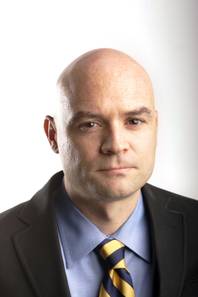Monday, Jan. 7, 2013 | 2 a.m.
View more of the Sun's opinion section

J. Patrick Coolican
'Chinatown' trailer
The holidays are always great for what we in the media call a “news dump” — that’s when press agents release information because they have to, but at a time when they hope few people will notice.
Well, a couple of days after Christmas, the Bureau of Land Management approved a plan to carry billions of gallons of water from rural Nevada counties near the Utah border to Las Vegas by way of a 263-mile pipeline.
The Southern Nevada Water Authority and its general manager, Pat Mulroy, say the pipeline will be an important safeguard given coming water shortages, though environmentalists and ranchers say it will be a catastrophe for scarce water resources and the lives that depend on them.
You know what else the holidays are good for? Catching up on old movies.
Sun coverage
- Water Authority gets state agency’s backing for pipeline to transport water from Lincoln, White Pine counties (09-12-2012)
- Environmental impact statement issued for proposed water pipeline (08-03-2012)
- Water pipeline project hearing wraps up (11-19-2011)
- Nevada leaders largely silent on pipeline controversy (10-14-2011)
- In rural Nevada, everyone worries about the pipeline (08-18-2011)
- Troubled waters: Las Vegas’ perpetual quest to quench itself (08-01-2011)
- Rural Nevada vs. Las Vegas: Battle over water advances (07-06-2011)
- Quenching Las Vegas' Thirst
So, I sat down to watch “Chinatown,” director Roman Polanski’s update of the classic noir genre, starring Jack Nicholson in the role of the cool private detective, J.J. Gittes.
Have you seen it? You should.
It blends the languid pace of the director-driven cinema of the 1970s with a menacing undercurrent — Los Angeles during the water wars.
“Are you alone?” asks Evelyn Mulwray, played by Faye Dunaway.
“Isn’t everyone?” Gittes replies. It’s just one of several one-liners delivered with usual aplomb by Nicholson.
“I take a long lunch hour — all day sometimes.”
In classic noir fashion, the plot is zigzaggy and suspenseful.
Nicholson’s Gittes mostly spies on cheating spouses, and the movie begins with what seems like a simple case of infidelity on the part of Hollis Mulwray, chief engineer for the Los Angeles Department of Water and Power.
But when Mulwray is found dead, our private detective Gittes figures out it was a setup and that the fix is in. He soon understands Mulwray’s murder has something to do with water and spends the movie unraveling the mystery.
It turns out Mulwray was murdered because he was trying to foil a plot by greedy land developers and the corrupt water agency: They were dumping much-needed water into reservoirs and sewers to drive down the price of arid farmland so they could buy the land cheap. All the while, they were fooling Los Angeles into building a water project for their massive new land holdings, leading to highly profitable flipping. A simple but genius plan that only required murder once Mulwray figured it out.
The movie plot didn’t come from nowhere. Screenwriter Robert Towne’s source material was “Southern California: An Island on the Land” by famed California historian Carey McWilliams.
“The absence of local water resources is, indeed, the basic weakness of the region — the eternal problem,” McWilliams writes.
Towne, the screenwriter, told a reporter a few years ago, “I was reading a chapter called ‘Water Water Water,’ about how this consortium of businessmen built a pipeline to carry water from one community hundreds of miles to the San Fernando Valley, and I realized, this is how the city was formed. It was basically a criminal operation.”
In his book, McWilliams describes a scheme similar to the one that plays out in “Chinatown.”
L.A. water was secretly dumped in reservoirs and sewers “so as to create an artificial water famine.”
In 1905, by a wide margin, voters approved a $25,000,000 bond issue for the Owens Valley Aqueduct. But voters had been duped. The water was really going to the San Fernando Valley, currently a place of endless fast food drive-ins and porn sets.
The buyers purchased 108,000 acres of land in the San Fernando Valley at $5, $10 and $20 per acre, and sold it for $500 and $1,000 per acre, for a profit of $100 million.
The water came from Owens Valley, 233 miles away. The result was an environmental nightmare that Owens Valley and its stepfather Los Angeles are still dealing with today.
McWilliams referred to the episode as another example of Southern California’s “ambivalent civic ethics.”
In “Chinatown,” when Nicholson’s character confronts the villain, he asks, “Why are you doing it? How much better can you eat? What can you buy that you can’t already afford?”
The villain, played by John Huston, replies, “The future Mr. Gittes! The future!”
Of course, it’s just a movie.

Join the Discussion:
Check this out for a full explanation of our conversion to the LiveFyre commenting system and instructions on how to sign up for an account.
Full comments policy